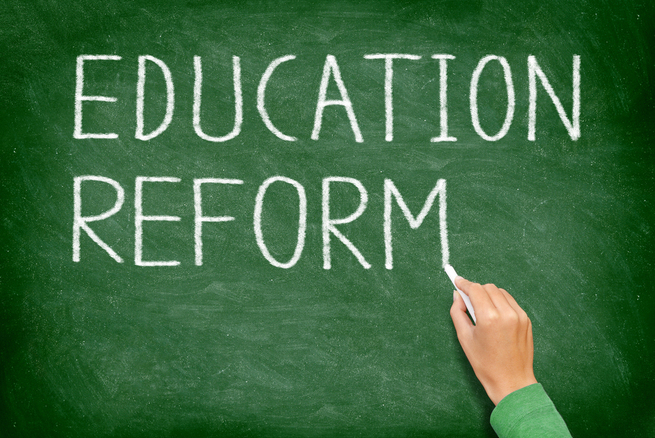Education is not only an instrument of enhancing efficiency but also an efficient tool for augmenting and widening democratic participation and upgrading the overall quality of an individual and the society. The institutions which are setup in our country can work efficiently, only when every citizen of the country, is educated. India has a vast population and to tap the potential demographic dividend, to remove the regional, cultural, social and gender imbalances, we must make efforts for improving the quality of education. The focus on quantitative expansion will not yield the desired results in view of fast changing domestic and global scenario.
The world today is realising that economic well-being and productive efficiencies can be harnessed through higher intellectual and professional capabilities of human beings. A quality human resource is extremely important in today’s highly competitive environment. The very concept of development in this decade has evolved from income and income distribution to human resource development. To meet these challenges and to strengthen our base of education pyramid, India bought the law on April 1, 2010 named the Right of Children to Free and Compulsory Education (RTE) Act, 2009. Further, to enhance enrolment, retention and attendance India launched the programmes like Midday Meal (MDM) and Sarva Shiksha Abhiyan (SSA).
The universities should not confine their students to the narrow disciplines which will make the learning process sterile. Learning of our students in schools and colleges is imprisoned in disciplines and does not allow wandering around their interests and passions as they develop.
India has passed many significant developments in the education sector by bringing in various laws to reform this sector. But only few achievements reached the set goals while most of them failed. Education in the hands of private parties is struggling and it is on the tip of iceberg ready to fall. The education which was once donated and preached freely had now became a lucrative business for entrepreneurs who are making profits out of it.
Students of today’s world can face the challenges only by creative thinking and self learning. Learning is acquired by the learner and not delivered by teachers. Students should involve in constructing his knowledge and narrow down the gap between the school learning and learning from life. The universities should not confine their students to the narrow disciplines which will make the learning process sterile. Learning of our students in schools and colleges is imprisoned in disciplines and does not allow wandering around their interests and passions as they develop. They are circumscribed by our examination system and forced to compete in mindless races to get high marks. And further to help in competitive exams we have a large pool of coaching industry which is very effective in killing curiosity and creativity. We should not forget that curiosity and passion withers away with age. Therefore the boundary crossing from the disciplines should be encouraged for the creative ideas to emerge. Schools, colleges and universities should become effervescent places, exploring and often going in tangential directions. They should be noisy places with debates and discussions, not dead quiet. We should realise that in this world of information revolution, while information can be delivered, each child creates its knowledge, explores and discovers almost autonomously.
Many states in our country are witnessing an explosion of professional colleges and universities leaving out the courses like Philosophy, Humanities, Social Sciences, writing poetry or worrying about the bulk of people living around of poverty, discrimination and oppression. Our IITs and IIMs can graduate into the class of world class universities if they venture out to include subjects like humanities and social sciences.
The fate of present universities can be changed and students in them would generate and spin out ideas, that might change the world or India perhaps by replacing the impenetrable walls with permeable membranes in following areas:
★ Walls between universities and research laboratories.
★ Between Industry and Academic Institutions.
★ Between Industry and learning from children.
★ Between Intellectual understanding and societal brainwashing.
Indian government, on the various schemes which it is bringing to develop education, needs to have an evaluation mechanism. For example, Mexico has setup the National Council for the evaluation of Social Development policy. It is a governmental body that has the mandate to independently evaluate government programmes and policies. Based on the evaluations, programmes are scaled up, closed down or modified. India can have same reputation as Mexico. India is home to many bold social development programmes (especially on education sector). But the failure to evaluate them is a lost opportunity. It is a lost opportunity for the government to achieve recognition for such schemes and programmes to know they are making a difference. Most importantly, it is a lost opportunity for the millions to have better lives.
Let us conclude this article with the observation made by the UNESCO three decades ago: “Education is the planned process of inducing these attitudes and transmitting those skills that are essential for local, regional and national development. Social change with economic and political change is most essential to all countries, especially developing countries that are yet to bring about fundamental changes for the fulfilment of the basic needs of all sections of their people.”
Let us hope that the commendable overall development made by India in all sectors of education during the past 68 years of independent India will be further augmented with a faster pace and new initiatives will be taken in the years to come.






